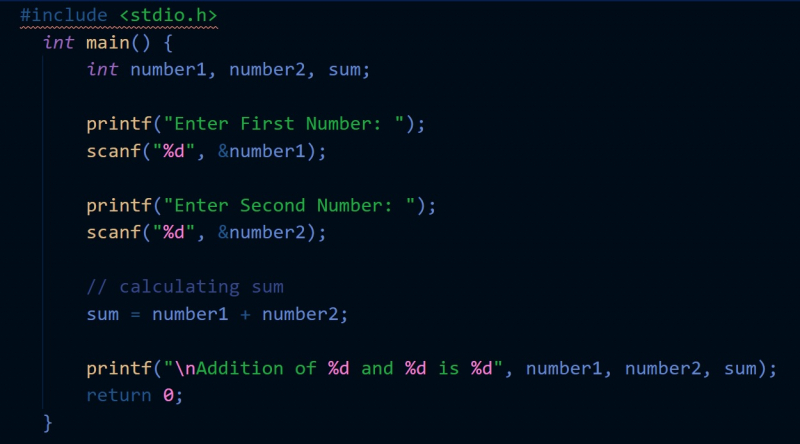C
C is a type of general-purpose programming language for computers, lauded as among the most popular programming languages in the world. Dennis Ritchie designed it in the 1970s, and it is still extensively used and important today.
By design, C's capabilities precisely mimic those of the intended CPUs. It is prevalent in computer architectures - ranging from the greatest supercomputers to the tiniest microcontrollers and embedded devices - and has found enduring usage in structural systems, device drivers, and protocol stacks, albeit less so in application software.
C is actually the successor of B, another programming language created between 1972 and 1974 by Dennis Ritchie at Bell Labs to create Unix utilities. It was used to reimplement the Unix operating system's kernel. Throughout the 1980s, C's fame increased progressively. And since 1989, ANSI and ISO (International Organization for Standardization) have standardized C as an official programming language.
To be more specific, C is an imperative procedural programming language with a static type system that supports imperative programming, lexical variable scoping, and recursion. It was compiled in order to give low-level accessibility to memory and language structures that translate effectively to machine instructions, with little runtime support. Despite its low-level features, this language was intended to facilitate programming across numerous platforms.
Users: 7.2 million
Website: https://www.cprogramming.com/







